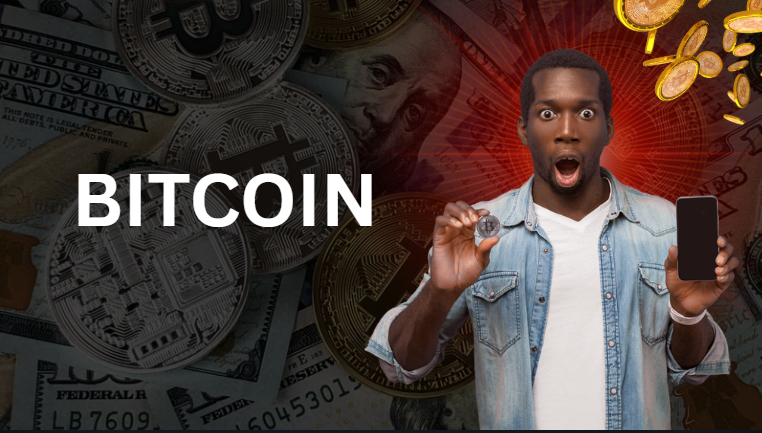Bitcoin is the world’s first and most popular digital currency. It was created in 2009 by a person or group using the name Satoshi Nakamoto. Unlike normal money issued by banks or governments, Bitcoin is decentralized. This means no single person, bank, or country controls it. People use Bitcoin to send money online, store value, or invest for the future.
What is Bitcoin?
Bitcoin is a type of cryptocurrency, which means it is money that exists only in digital form. You cannot hold a Bitcoin in your hand like a coin or note. Instead, it works on a technology called blockchain.
A blockchain is a public record that keeps track of every Bitcoin transaction. This system makes it safe, transparent, and almost impossible to cheat.
Also Read : xrp
How Does Bitcoin Work?
Bitcoin works on a peer-to-peer network. This means people can send Bitcoin directly to each other without needing a bank.
Here’s how it works step by step:
- A user creates a Bitcoin wallet.
- The wallet generates a special address, like a bank account number.
- When you send Bitcoin, the transaction is recorded on the blockchain.
- Miners (special computers) confirm the transaction by solving puzzles.
- Once confirmed, the transaction cannot be changed.
This process ensures that Bitcoin is secure and trustworthy.
Why is Bitcoin Popular?
Bitcoin has grown in popularity for several reasons:
- Decentralization: No bank or government controls it.
- Limited Supply: Only 21 million Bitcoins will ever exist, making it rare.
- Transparency: Every transaction is recorded on the blockchain.
- Global Use: Anyone with internet access can use it.
- Potential Profit: Many investors buy Bitcoin hoping its value will rise.
Advantages of Bitcoin
- Fast Transfers – Sending Bitcoin takes minutes, even across countries.
- Lower Fees – Transactions often cost less than bank fees.
- Privacy – Users can send and receive money without revealing personal details.
- Accessibility – Anyone with a smartphone or computer can join.
- Hedge Against Inflation – Many see Bitcoin as “digital gold” that can protect value.
Risks of Bitcoin
While Bitcoin has benefits, it also comes with risks:
- Price Volatility: Bitcoin’s value can rise or fall very quickly.
- No Refunds: Once sent, a Bitcoin transaction cannot be reversed.
- Security Issues: If someone hacks your wallet or you lose your private keys, your Bitcoin is gone forever.
- Legal Concerns: Some countries have banned or restricted Bitcoin.
- Scams: Fake investment schemes use Bitcoin to trick people.
How to Buy Bitcoin
If you want to buy Bitcoin, here are the steps:
- Choose an Exchange – Platforms like Coinbase, Binance, or Kraken allow users to buy Bitcoin.
- Create an Account – Register and verify your identity.
- Add Funds – Deposit money using a bank card, transfer, or payment app.
- Buy Bitcoin – Select Bitcoin, enter the amount, and confirm.
- Store Safely – Move your Bitcoin to a secure wallet for safety.
How to Store Bitcoin Safely
Bitcoin can be stored in two main ways:
- Hot Wallets: Online wallets connected to the internet. Easy to use but more risky.
- Cold Wallets: Offline wallets, like hardware devices. Safer but less convenient.
Many experts suggest using cold wallets for long-term storage.
The Future of Bitcoin
The future of Bitcoin is still uncertain, but many believe it will play a big role in global finance. Some experts think Bitcoin will be widely accepted for payments, while others see it as an investment asset like gold. Governments are also exploring regulations to make it safer for users.
FAQs
1. Is Bitcoin legal?
Yes, in many countries Bitcoin is legal. However, some nations have banned it. Always check your country’s rules before buying or using Bitcoin.
2. Can I buy less than one Bitcoin?
Yes! Bitcoin can be divided into smaller units called Satoshis. You can buy even $10 worth of Bitcoin.
3. Is Bitcoin safe?
Bitcoin itself is secure because of blockchain technology. But you must protect your wallet and private keys from hackers.
4. Can Bitcoin make me rich?
Bitcoin’s price has grown a lot in the past, but it is very risky. Some people made profits, while others lost money. It’s important to invest carefully.
5. Who controls Bitcoin?
No one controls Bitcoin. It runs on a decentralized network of computers around the world.
6. What is Bitcoin mining?
Mining is the process of using computers to confirm transactions and add them to the blockchain. Miners are rewarded with new Bitcoins.
7. Will Bitcoin replace normal money?
It’s possible, but not certain. Some people believe Bitcoin could become a global currency, while others think it will remain mainly an investment asset.
Conclusion
Bitcoin has changed the way people think about money. It offers freedom, fast transactions, and global access, but it also comes with risks like volatility and security issues. Whether you want to use Bitcoin for payments or as an investment, it’s important to learn how it works before getting started.
Bitcoin may not be perfect, but it has opened the door to a new world of digital finance.


